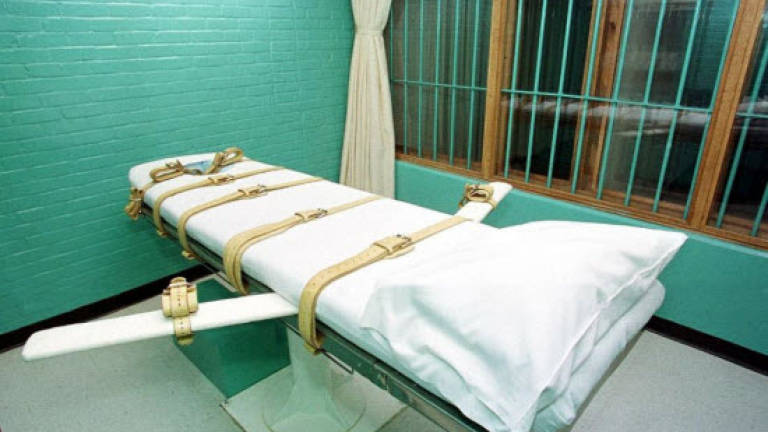US prisoner faces lethal injection after losing Supreme Court case

WASHINGTON: An Oklahoma death row inmate who was a plaintiff in a US Supreme Court challenge to the use of an alternative lethal injection drug faces execution Wednesday.
Richard Glossip, 52, is scheduled to die at 3pm (2000 GMT) in the Oklahoma State Penitentiary in McAlester, 200km east of Oklahoma City, the state capital.
He was convicted of ordering the 1997 murder of his employer, an Oklahoma city motel owner. Glossip maintains his innocence.
The US Supreme Court ruled 5-4 in June against Glossip and two other death row inmates.
Their lawyers argued that the use of midazolam, a drug meant to cause unconsciousness, violates the constitutional ban on cruel and unusual punishment.
The plaintiffs argued that midazolam, which was used in several botched executions in recent years, can still allow inmates to feel pain, violating the rights of those being executed by leaving them to possibly feel excruciating pain caused by the other two drugs that actually kill them.
Lower courts had sided with the state of Oklahoma, which successfully argued that midazolam reliably renders inmates unconscious and incapable of feeling pain.
Midazolam was first used in an execution in 2014 in Oklahoma after two other drugs used to sedate inmates became difficult to procure. The European Union has embargoed the alternative drugs, and drug companies have also refused to supply other drugs for the procedure.
Questions about the drug combination arose after Oklahoma's lengthy execution last year of Clayton Lockett. He awoke during the execution and began to move and speak after a medic had difficulty inserting a needle to administer the drugs.
Lawyers for the inmates in the Supreme Court case cited further botched executions using the same drug in Ohio and Arizona.
Oklahoma has 49 prisoners on death row. Two others are scheduled for lethal injection in December.
Thirty-one of the 50 states, plus the federal government and military, retain the option of capital punishment for certain crimes, according to the non-governmental Death Penalty Information Centre, which opposes the practice.
Last month, the state supreme court in Connecticut struck down the death sentences of existing prisoners who were not yet covered by a 2012 law that removed capital punishment for future cases.
Now 19 states have no death penalty after actions by courts, governors and legislatures to halt the practice in recent years. – dpa